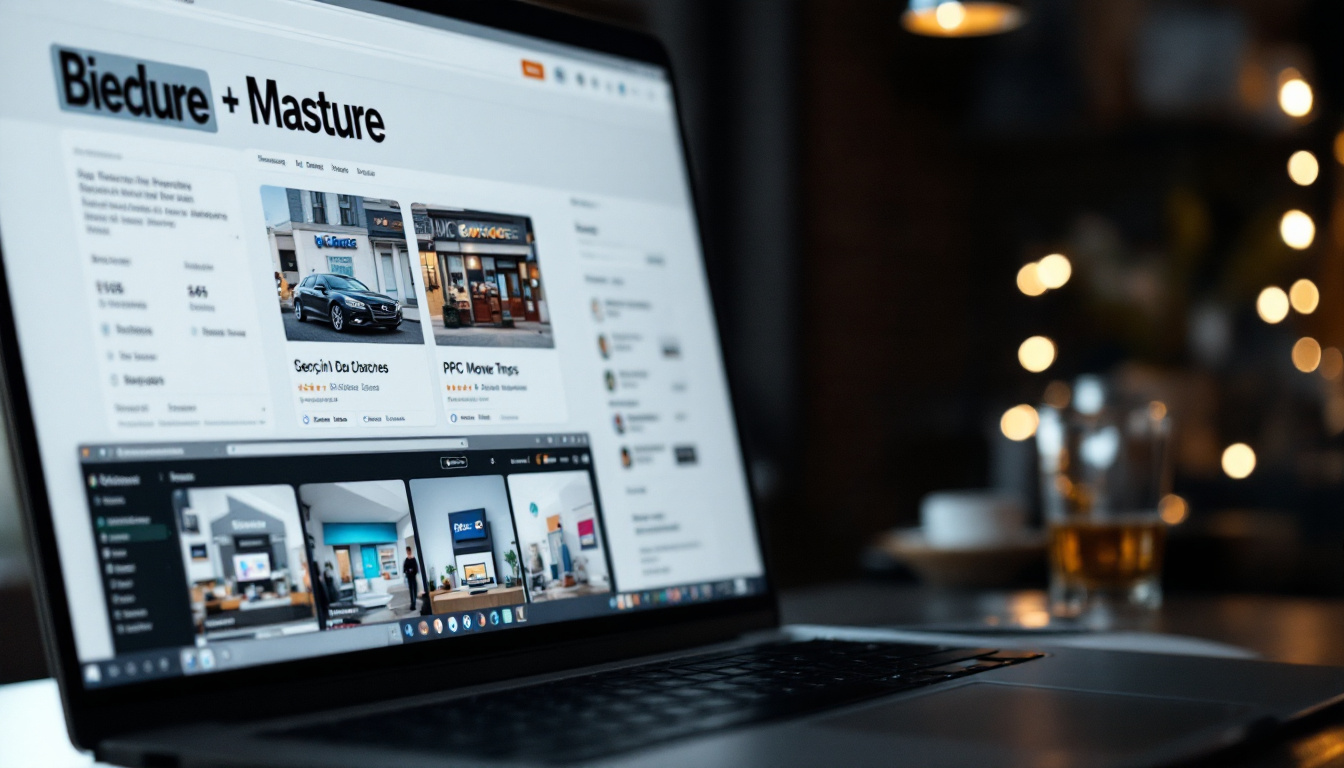How PPC Complements Local SEO for Cincinnati, OH Businesses

With the increasing competition in the digital landscape, local businesses in Cincinnati, OH, are continuously seeking effective strategies to enhance their online visibility. Pay-Per-Click (PPC) advertising is often viewed as a complementary tool to Search Engine Optimization (SEO). This article explores how these two marketing approaches work together to drive traffic and increase conversions.
How PPC Complements Local SEO for Cincinnati, OH Businesses
PPC and local SEO may serve different purposes, but they can create a powerful synergy when utilized in tandem. Businesses in Cincinnati can achieve maximum exposure by integrating both strategies, attracting potential customers at different stages of their buying journey.

When a potential customer searches for local products or services, they may encounter organic results influenced by SEO as well as paid ads through PPC. The visibility gained from both avenues increases brand awareness and trust.
Moreover, running PPC campaigns alongside a local SEO strategy allows businesses to target specific demographics and locations effectively. For instance, a restaurant in Cincinnati can use PPC to target diners within a defined radius, while simultaneously improving their organic search rankings to attract more visitors through SEO.
The difference between PPC and SEO: Why use both?
PPC and SEO differ primarily in their approach to online visibility. SEO focuses on optimizing a website to rank higher in organic search results over time, while PPC delivers immediate traffic through paid advertisements. Understanding these differences is essential for Cincinnati businesses looking to maximize their online presence.
SEO strategies often entail keyword research, content creation, and link-building, which may take time to yield results. In contrast, PPC campaigns can start generating traffic within hours of being set up. For businesses that need quick visibility, such as those launching a new product or service, PPC is invaluable.
However, relying solely on PPC can be costly in the long run, especially if a business does not establish a solid organic presence. That is why utilizing both PPC and SEO strategies allows businesses to create a well-rounded digital marketing plan, where short-term gains from PPC support the longer-term benefits of SEO.
How PPC can boost your local search visibility
PPC advertising can significantly enhance local search visibility, particularly in competitive markets like Cincinnati, OH. By targeting specific keywords that local customers are likely to use, businesses can attract relevant traffic promptly. PPC campaigns can also be tailored to appear only to users in particular geographic areas, ensuring that the ads reach potential customers nearby.
Additionally, the use of ad extensions in PPC campaigns allows businesses to provide more information about their offerings, such as location, contact number, and promotions. This not only aids in capturing attention but also improves click-through rates, driving more potential customers to the website.
Moreover, the insights gained from PPC campaigns—such as keyword performance and audience interaction—can inform and enhance SEO strategies. For instance, if a particular keyword performs well in PPC, it may be worth targeting in the organic strategy as well.
Furthermore, businesses can leverage remarketing strategies through PPC to re-engage customers who have previously visited their website. This tactic is particularly effective in local markets, as it allows businesses to stay top-of-mind for potential customers who may be considering a purchase. For example, a local boutique in Cincinnati can serve ads to users who browsed their online store but did not complete a purchase, enticing them with special offers or new arrivals to encourage them to return and finalize their transaction.
In addition to remarketing, PPC can also be used to promote local events or special promotions that might not be easily captured through organic search. For instance, a Cincinnati-based event venue can run targeted ads to promote an upcoming concert or festival, ensuring that local residents are aware of the event and can easily access ticket purchasing options. This targeted approach not only drives immediate traffic but also fosters community engagement, which is crucial for local businesses aiming to build lasting relationships with their customer base.
Examples of SEO and PPC working together in Cincinnati, OH
In Cincinnati, several businesses successfully illustrate the effectiveness of combining PPC and SEO strategies. A local home service company, for example, might use PPC to attract immediate leads during peak seasons while simultaneously optimizing its content to rank organically over time for less competitive, long-tail keywords. This strategy not only helps the company capture urgent inquiries but also builds a sustainable flow of organic traffic, creating a balanced approach to customer acquisition.

Another example is a local retail store that invests in PPC to promote specific products or seasonal sales while building SEO authority through content like blogs and product reviews. This dual approach not only drives immediate traffic but also helps establish the brand as a trusted local resource. By crafting engaging blog posts that highlight product features and customer testimonials, the store can enhance its SEO while simultaneously running targeted PPC ads that drive traffic to these informative pages, creating a seamless customer journey.
Moreover, events like the Cincinnati Arts Festival are prime opportunities for businesses to combine their PPC and SEO efforts. Leveraging PPC to target event-specific keywords can draw visitors interested in local activities, while optimizing website content around the event’s themes can build relevance and authority in local search results. Businesses can create dedicated landing pages that not only promote their participation in the festival but also include relevant content about the event, such as artist profiles or event schedules, thereby increasing engagement and driving more traffic both from paid and organic sources.
Tips for aligning your PPC and SEO strategies
Aligning PPC and SEO strategies can be achieved through several practical steps:
- Keyword Cohesion: Use data from your PPC campaigns to refine and adjust your keyword strategy in SEO. Check which keywords are performing the best in terms of conversions. By identifying high-performing PPC keywords, businesses can prioritize these in their SEO efforts, ensuring that they are targeting the most lucrative search terms.
- Consistent Messaging: Ensure that the messaging and offers in your PPC ads mirror those in your organic listings. Consistency strengthens brand recognition and fosters trust among potential customers. When users see the same promotions across both platforms, they are more likely to engage with the brand.
- Monitor Performance: Regularly analyze the performance metrics from both PPC and SEO efforts. Use these insights to tweak campaigns in real-time to optimize results effectively. This ongoing analysis can reveal trends over time, allowing businesses to adapt their strategies to changing consumer behavior.
- Create a Landing Page Strategy: Design landing pages that support both PPC ads and SEO goals. This helps in providing relevant content to visitors, improving user experience, and potentially boosting conversion rates. A well-structured landing page can serve as a central hub for both paid and organic traffic, guiding users toward desired actions.
Tools to measure the combined impact of PPC and SEO
To effectively analyze the impact of both PPC and SEO efforts, businesses in Cincinnati should utilize a variety of tools:
- Google Analytics: A vital tool for monitoring website traffic, user behavior, and conversion rates. Businesses can track how PPC campaigns influence organic traffic and vice versa. By setting up goals and conversion tracking, companies can better understand the customer journey from initial click to final purchase.
- Search Console: This tool offers insights into how well a website performs in organic search and helps identify keywords that could be targeted in both PPC and SEO. It can also provide data on click-through rates and impressions, allowing businesses to refine their strategies based on actual performance metrics.
- PPC Management Tools: Tools like Google Ads provide detailed reports on ad performance, allowing businesses to analyze which keywords contribute to conversions and how they correlate with organic metrics. This data can inform future campaigns and help in budget allocation.
- Heatmap Tools: Tools like Hotjar or Crazy Egg can showcase user interaction on landing pages, which helps in understanding how PPC-driven traffic engages with content optimized for SEO. By analyzing user behavior, businesses can make informed adjustments to improve user experience and conversion rates.
In addition to these tools, implementing A/B testing for both PPC ads and landing pages can provide valuable insights into what resonates most with the target audience. This iterative process allows businesses to refine their messaging and design, ensuring that both PPC and SEO efforts are as effective as possible. Furthermore, integrating social media strategies can complement both PPC and SEO, creating a comprehensive digital marketing approach that enhances visibility across multiple channels.

As a Google Ads expert, I bring proven expertise in optimizing advertising campaigns to maximize ROI.
I specialize in sharing advanced strategies and targeted tips to refine Google Ads campaign management.
Committed to staying ahead of the latest trends and algorithms, I ensure that my clients receive cutting-edge solutions.
My passion for digital marketing and my ability to interpret data for strategic insights enable me to offer high-level consulting that aims to exceed expectations.



















